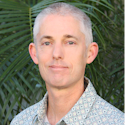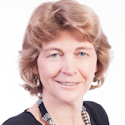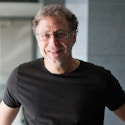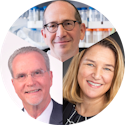- Speakers
-
 Jake Gratten, Ph.D.
Jake Gratten, Ph.D.Group Leader, Mater Research Institute, The University of Queensland
Adjunct Senior Research Fellow, Institute for Molecular Bioscience Naomi Wray, Ph.D.
Naomi Wray, Ph.D.National Health and Medical Research Council Leadership Fellow – Group Leader, Institute for Molecular Bioscience
Affiliate Professor, Queensland Brain Institute, The University of Queensland
By clicking to watch this video, you agree to our privacy policy.
On May 12, 2021, Jake Gratten and Naomi Wray presented findings from the Australian Autism Biobank study, an initiative to establish an Australian resource of biospecimens, phenotypes and genomic data for autism research.
Their talk was part of the Simons Foundation Autism Research lecture series.
About the Lecture
Autism spectrum disorder (ASD) is a complex neurodevelopmental condition whose biological basis is yet to be elucidated. The Australian Autism Biobank (AAB) is an initiative of the Cooperative Research Centre for Living with Autism to establish an Australian resource of biospecimens, phenotypes and genomic data for autism research.
In this lecture, Jake Gratten and Naomi Wray reported on results from 2,477 individuals with DNA data from 546 families, including 886 participants ages 2 to 17 years with diagnosed (871 participants) or suspected (15 participants) ASD, 218 siblings without ASD, 1,256 parents, and 117 unrelated children without an ASD diagnosis. A subset of these AAB participants has fecal microbiome data (the largest data set to date internationally). Their analyses suggest that autism traits lead to restricted dietary intake, leading to reduced microbiome diversity, with no evidence for a reverse causal relationship.
Inquiries: [email protected]
About the Speakers
Jake Gratten leads the Cognitive Health Genomics group at the Mater Research Institute at the University of Queensland in Australia. He is a former National Health and Medical Research Council Career Development Fellow, and he leads systems genomics analyses of autism for the Australian Autism Cooperative Research Centre. His research aims to understand the causes of common brain disorders by combining cutting-edge laboratory methods with statistical analysis of large-scale genomic, psychometric and lifestyle data.
Naomi Wray holds joint professorial positions between the Institute for Molecular Bioscience and the Queensland Brain Institute at The University of Queensland in Australia. She is a fellow of the Australian Academy of Science and a fellow of the Australian Academy of Health and Medical Sciences. Her research intersects quantitative genetics, statistical methodology and disorders of the brain. She has played leading roles in analyses for International Psychiatric Genomics Consortia working groups.



